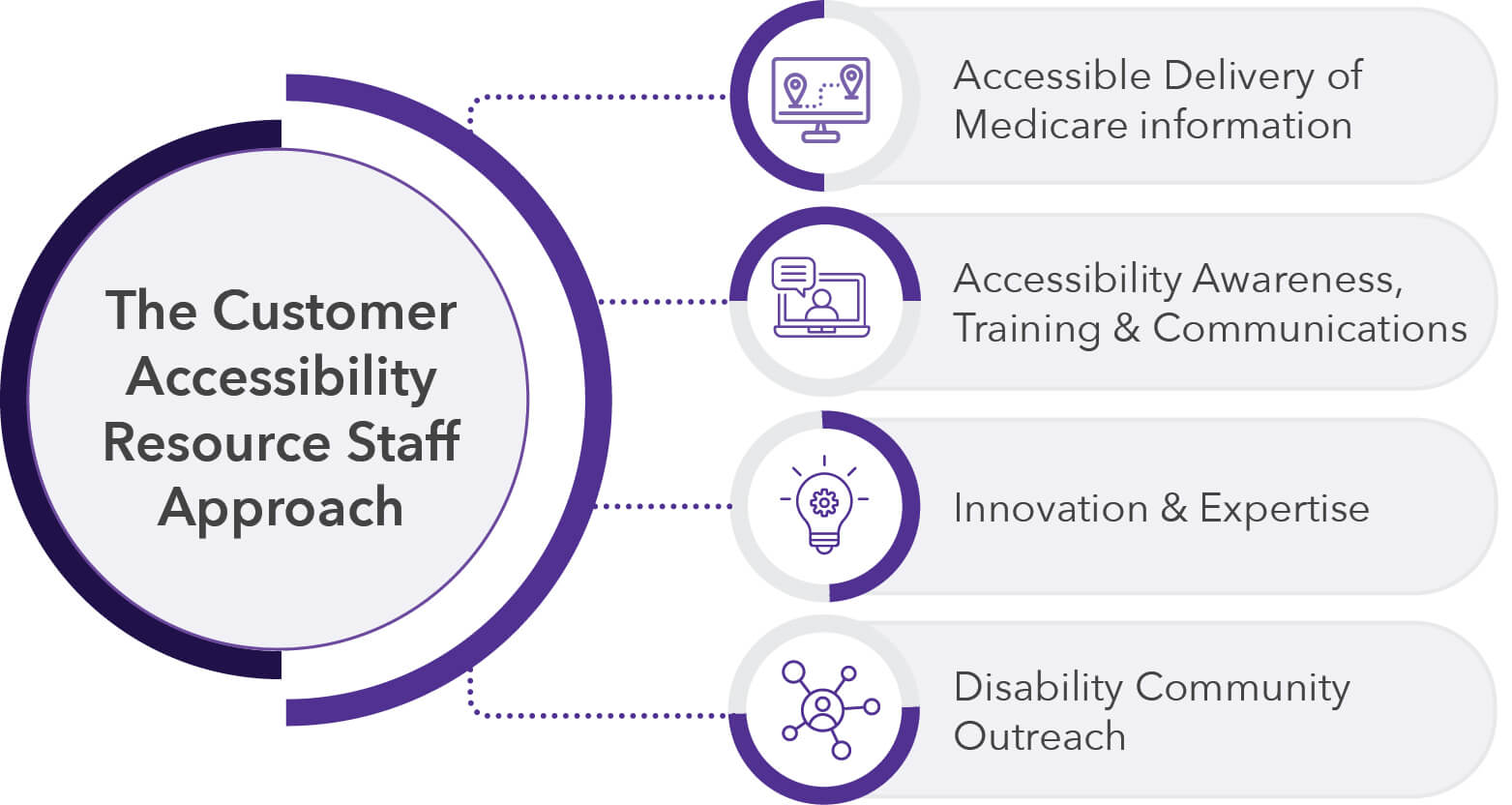.jpg)
Improving customer experience with equal access for all
Key takeaways
Working with Maximus, the Centers for Medicare and Medicaid Services (CMS) expanded a required effort to improve accessible access to healthcare information into an organization-wide initiative to drive broad cultural change, improve customer experience (CX), and support the citizen journey. Among its many positive impacts, our solution improved Rehabilitation Act compliance, accessibility training, and stakeholder outreach with the disability community.
A CMS accessibility program to improve compliance
Situation
Up to one in four Americans currently lives with some form of disability and giving them equal and meaningful access to government information and services is required by the Rehabilitation Act of 1973. For health information and services, equal access can also have a critical impact on health outcomes. Disability advocates raised awareness of the need to increase access to CMS information and services for those with visual impairments and other disabilities.
Challenge
CMS tapped Maximus to make significant accessibility improvements that would improve accessibility compliance and underscore the agency’s dedication to advancing health equity, expanding coverage, and improving health outcomes.
Solution
CMS’s improvement to information access was not simply a box-checking effort, but rather a concerted commitment to shifting the culture and conversation around accessibility. The agency implemented Customer Accessibility Resource Staff (CARS), a coordinated approach to integrating technology and expertise in program management, accessibility training, and communications with specific tactics to build a cohesive accessibility program.
A programmatic approach to improving access and outcomes

How we did it
- Accessible delivery of Medicare information
Accessibility audits led to dedicated resources to support accessible format information, a holistic view of communications, and improved engagement across call centers, printed materials, digital, social media, and in-person assistance. - Improved awareness, training, and communications
Development of agency-wide accessibility compliance training was coupled with accessibility-specific branding and culturally sensitive graphics and messaging to improve effectiveness and build trust. - Implementation of agile pKey innovation and expertise processes enabled staff to identify, assess, and triage immediate accessibility issues, while our experts guided accessibility technology investments and emerging solutions to enhance CX.
- Expanded outreach to the disability community
Training for CMS benefits enrollment personnel aimed to improve service to disabled citizens and team attendance at nationwide disability events enabled learning from citizens’ experiences and increased awareness of CMS programs and disability resources.
Results
- Strengthened compliance with Rehabilitation Act sections 501, 504, and 508
- Reduced barriers to information access and effective communication
- Achieved up to 98% accessibility awareness training compliance for 6,000+ CMS employees
- Reduced accessibility complaints against health and drug plans to less than 1%
- Increased CMS program awareness, CX, and customer and employee satisfaction
- Established cross-agency collaboration and accessibility knowledge sharing
- Received a 2023 Service to the Citizen Award